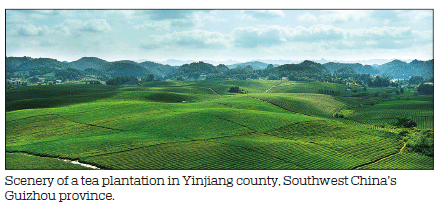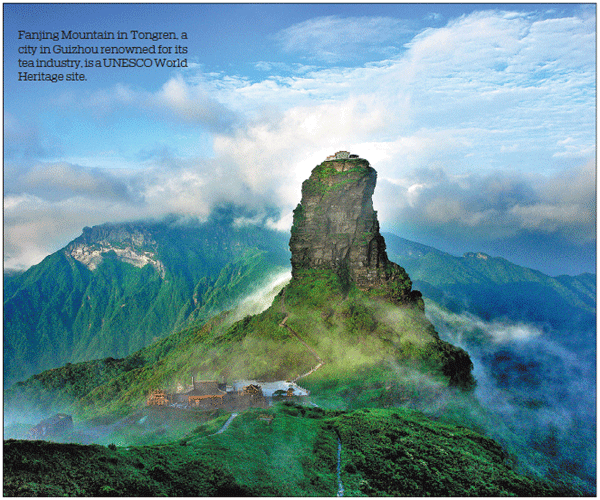Reporter's log: An appetite for a drink I had avoided all my life
I thought I knew what tea smells like. Fundamental to the reductive and often cloying stereotypes the Irish willingly buy into is that we're a nation of tea drinkers.
No more than many stereotypes, it's one that carries with it some truth. Behind Turkey we're ranked second worldwide in per capita tea consumption.
One of the country's best-known institutions, Irish-written TV sitcom Father Ted, features the character of housekeeper Mrs Doyle.
Her catchphrase - "Will you have a cup of tea? Ah, go on" - is as well known as any of Ireland's cultural exports. Its influence speaks to the space tea occupies in the country's national identity.
I've never been a tea drinker myself but I've been surrounded by it. Cups brewed from tea bags produced by Barry's or Lyons, Ireland's two most popular tea brands and inspiration for a certain tribalism, the latter being English-owned and thus carrying a certain colonial connotation.
Full-fat Irish milk diluted the tea that gave its scent to teachers' staff rooms or Gaelic football clubhouses, or anywhere that adults congregated in my childhood.
At some stage I decided I didn't like it. I wasn't a man for tea or its aroma.
Ireland cannot compete with China for outright volume of tea consumption. The Chinese put away about 725 million kilograms of it a year.
Southwest China's mountainous Guizhou province is looking to become the country's largest tea exporter by 2020. It aims to ship about 50,000 tonnes of the stuff a year.
The province is home to almost half-a-million hectares of tea plantations and its altitude, comparatively mild climate and clean air make it ideal for growing tea.
I was in Guizhou in early August and headed for a Fanjing Mountain green tea plantation high above the village of Datun.
The journey took on a constant but comfortable incline, taking in the occasional corkscrew turn with a few vehicles passing on the other side, green valleys left behind. I arrived at the plantation but the climbing continued as I walked to the facility's summit and into the middle of its crops. I smelled it. Tea. It was a smell essential and irreducible, unlike the imitation hanging around Ireland.
I met with You Hui, who works at the plantation. We sat by an open fire with a porcelain jug in the middle from which we poured green tea into our bowls. This was the way to drink tea, You said, the way that local people had drunk it for thousands of years. We drank and sat, chatting. You told me that men in the village live long lives because they've little taste for beer. Social life revolves around an open fire rather than the local bar.
Irish social life occurs primarily in bars. If Mrs Doyle's cup of tea catchphrase speaks to a fundamental of Irish identity, so too does another of the show's catchphrases: Father Jack's repeated calls for (alcoholic) "Drink".
Sat high in Guizhou's mountains with the first cup of tea I had enjoyed and a smell I thought I'd known but hadn't, I could understand the appeal of staying away from the pub.
eoghannorrismcneill@chinadaily.com.cn

|
Fanjing Mountain in Tongren, a city in Guizhou renowned for its tea industry, is a UNESCO World Heritage site. |
(China Daily 10/01/2019 page12)















